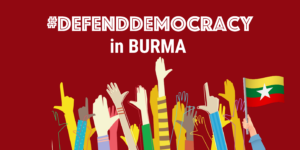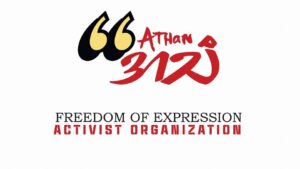Police fired guns into the air, reportedly injuring several people, and used water cannons during the fourth day of nationwide demonstrations against last week’s military coup. Meanwhile, a journalist and others were reportedly arrested, and New Zealand suspended high-level military and political ties with Myanmar, the Council on Foreign Relations reports.
Pro-democracy protests erupted once again as residents defy new orders, handed down on Monday night, banning mass gatherings in the country’s largest cities, Foreign Policy adds. In a televised speech, coup leader Gen. Min Aung Hlaing repeated his unfounded claim that November’s elections showed widespread voter fraud and promised to hold new elections in a year.
CFR’s Joshua Kurlantzick looks at potential policy responses to Myanmar’s coup.
 “The region was making very strong progress toward democracy, but it has backslid badly now,” Kurlantzick, told Deutsche Welle:
“The region was making very strong progress toward democracy, but it has backslid badly now,” Kurlantzick, told Deutsche Welle:
Though democracy is not flourishing anywhere in Southeast Asia, which is home to openly undemocratic regimes like those in Brunei, Vietnam and Laos, Kurlantzick said developments were most concerning in Myanmar, Thailand, Cambodia, and the Philippines, where attempts at civilian-led democratic governments are facing increasing opposition and resistance from entrenched elites.
Kurlantzick fears that the armed forces will “try the Thai way of managing a return to quasi democracy with a different electoral system that is biased against the NLD and favors the military and its allies, as the Thai military has done.”
 Lee Morgenbesser, a senior lecturer at Australia’s Griffith University whose research focuses on authoritarian regimes and Southeast Asian politics, told DW that “the coup confirms — if any further confirmation was needed — that authoritarian rule is a mainstay of political life in Southeast Asia.”
Lee Morgenbesser, a senior lecturer at Australia’s Griffith University whose research focuses on authoritarian regimes and Southeast Asian politics, told DW that “the coup confirms — if any further confirmation was needed — that authoritarian rule is a mainstay of political life in Southeast Asia.”
The National Endowment for Democracy, International IDEA, and other global democracy organizations issued a joint statement calling for Burma’s military to respect the outcome of the national elections held in November 2020, release all detained political and civil society leaders, end the violence, and allow the country to continue on a path of democratic reforms. [Read the full statement on Burma here.]







